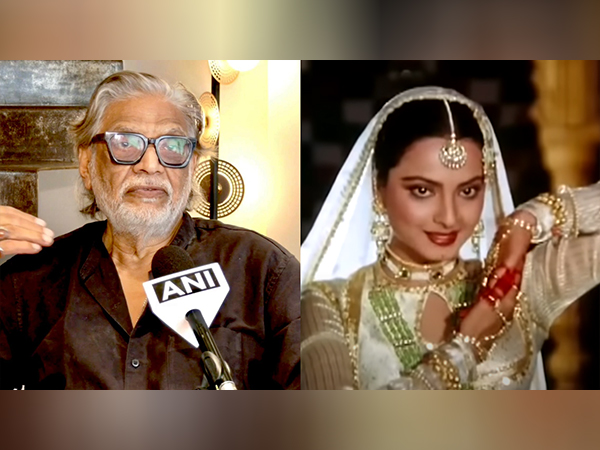Muzaffar Ali's 'Umrao Jaan' Returns: A Cinematic Revival
Filmmaker Muzaffar Ali discusses the re-release of his iconic film 'Umrao Jaan', celebrated for its poetry, culture, and music. He emphasizes art's enduring impact, Rekha's transformative role, and the relevance of classic storytelling. A new coffee table book and connection to his fashion label further honor the film's legacy.

- Country:
- India
Renowned filmmaker Muzaffar Ali recently reflected on the revitalization of his celebrated film, 'Umrao Jaan', as it makes its return to theatres. Esteemed for its rich poetry, soul-stirring music, and cultural depth, the film remains a cherished masterpiece, captivating audiences decades after its original release. In an interview with ANI, Ali shared his philosophical perspective on the current relevance of films steeped in history, poetry, and music in today's swift-paced world.
Ali expressed, 'Art must follow the heart's pace. True art is inherently time-consuming and profound, aiming to reach far. Criticizing the world cannot produce genuine art; instead, it must uphold its own rhythm, resonating with those who endeavor to understand it.' Ali's unforgettable collaboration with the legendary Rekha, who embodied the iconic role of Umrao Jaan, stands as one of the film's highlights.
Recounting his work with Rekha, Ali likened it to 'working with a dream'. He noted, 'Rekha lived the dream with me. She instinctively embraced the character beyond my vision, transforming into Umrao with remarkable depth and authenticity. It transcended mere acting; it was a profound transformation.'
When discussing Rekha's portrayal of Umrao, Ali noted, 'The challenge lay in capturing Umrao's pain and the essence of being a woman in that era. Rekha internalized and naturally conveyed these emotions with great artistry and complexity.' Reflecting on classic storytelling's continued relevance, Ali emphasized deeply internalizing a story to effectively bring it to the cinematic realm.
Ali suggested, 'Forget the cinematic aspect momentarily. One must grasp the story's tactile and abstract essence, allowing it to manifest naturally on screen.' As 'Umrao Jaan' approaches its re-release, Ali hopes the film's timeless themes will resonate with younger viewers.
Ali commented, 'The film is an intimate experience, with each scene's intensity resonating with individual viewers.' Additionally, a coffee table book detailing the film's history is set for release.
Ali described the book as a significant 'milestone', saying, 'Collaborating with Kamath Photo Flash, we unearthed valuable archives and captured rare frames during restoration.'
'This book is a visual feast for collectors, students, and cinema enthusiasts. It delves into the time, narrative, and artistic elements that define 'Umrao Jaan', Ali explained, noting the film's connection to his fashion label, House of Kotwara.
'Umrao Jaan narrates its story through textiles, carrying legacy and heritage in each piece,' Ali said. 'House of Kotwara embodies the empowerment of women through craftsmanship, akin to the film's philosophical core.' The 1981 film version has achieved cult status and won multiple National Awards, despite the 2006 remake's lukewarm reception. Both versions draw from Mirza Hadi Ruswa's renowned novel, 'Umrao Jaan Ada'.
(With inputs from agencies.)
ALSO READ
Himachal Pradesh's Border Tourism: Gateway to Kinnaur's Cultural Heritage
Army Chief Inaugurates Community Radio, Promotes Cultural Heritage
Digitizing Diversity: Uttarakhand's Bold Step to Preserve Cultural Heritage
Uttarakhand Empowers Women and Honors Cultural Heritage
Unrelenting Strikes: Russia's Retaliatory Assaults Devastate Ukraine, Target Cultural Heritage










